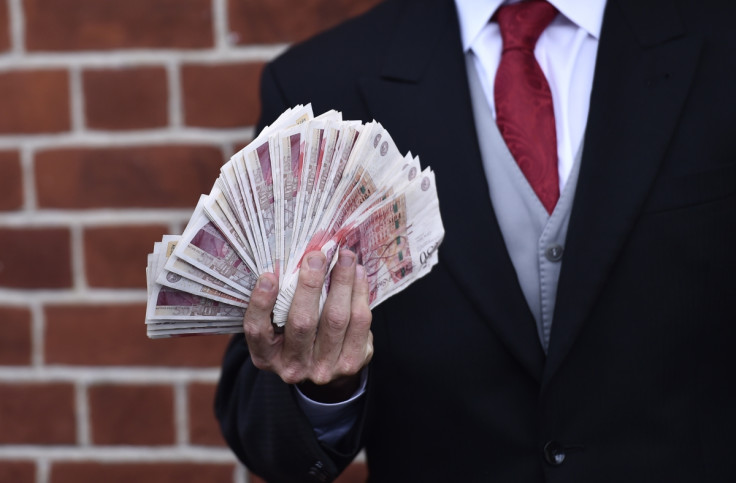UK's failure to deal with customs fraud could affect post-Brexit trade deal with the EU
EU expected to seek €2bn from Britain for not stopping Chinese gangs undervaluing imported goods.
The UK is set to be handed a €2bn (£1.69bn) bill by the European Union over its failure to sort out customs fraud and this could potentially affect any post-Brexit trade deal with the bloc, a European Commission source said.
HM Revenue & Customs is believed to have failed to stop Chinese crime gangs from undervaluing goods being imported into the EU through Dover and Felixstowe, avoiding billions of pounds in customs duty and value-added tax (VAT).
EU investigators believe that Britain has become the gateway for Chinese gangs to import under-declared goods into Europe.
The Times said that the European Commission is considering whether to launch formal infringement procedures against Britain.
"This fraud is still going on and Britain knows," a European Commission source told The Times. "It will come up in trade discussions and it will have an impact on the future customs relationship between the EU and Britain," the source said.
The Times said that official figures obtained show that crime gangs based in Britain but with international operations, have doubled the volume of fraudulent freight that they ship into the EU through British ports in the past three years.
Shipments of clothing and shoes imported from China into the UK rose to more than 407 million kg in 2016 from just 192 million kg in 2013.
"HMRC needs to get on top of this because Britain is now seen by these crime gangs as the soft underbelly of Europe."
Olaf, the EU's anti-fraud office claims that the average value declared at the UK border for women's cotton trousers were €0.91 per kg, compared with an EU average of €26.09. Customs duty, the newspaper said, is charged at 12% of the declared value resulting in the gangs making huge savings by using British ports.
The newspaper noted that around 86% of the suspicious goods are immediately re-exported to the continent, usually by "shadow companies" that disappear without paying VAT. Suspect goods re-exported to the EU rose to 353m kg in 2016 from 134m kg in 2013, the newspaper says.
"HMRC needs to get on top of this because Britain is now seen by these crime gangs as the soft underbelly of Europe," Meg Hillier, the chair of the Commons Public Accounts Committee said.
She said that fraudsters look for the easy way and "they will find every loophole – Britain has come to be a soft touch. We have been concerned that HMRC has been slow to act. These criminals are very clever and move very swiftly but there is also a competency issue and we have to ask if HMRC can keep pace."

Although the EU budget may appear the hardest hit, Hillier warned that British businesses will be hit as well. "They are being undercut by people who are not paying duties and taxes. It creates and unlevel playing field and that hits British jobs."
According to The Times, Olaf has put the excise losses at €2bn and the VAT loss at €3.2bn from 2013-2016. Olaf has said that despite "repeated efforts" to get the HMRC to engage in an EU-wide campaign against such fraudsters.
Four senior-level bilateral meetings have been held between Olaf and British officials to bring up the problem in 2015 and 2016, the EU's anti-fraud office said.
It said that the HMRC was actively involved in two multinational probe into fraud gangs. It detected but failed to recover the €400m in duty lost during one four-week period, the newspaper said.
Ernesto Bianchi, the head of investigations at Olaf said the UK only worked with a new EU-wide fraud detection system only "for a short period of time" during the Operation Snake probe.
"Then they stopped. We are concerned more than disappointed because we've seen that, over time, as the other 27 countries were applying this in a systematic way traffic seems to have diverted to the UK."
Bianchi said that 79% of the losses in customs duties to the EU budget in 2016 came from imports through Britain.
HMRC rejects Olaf claims
HMRC said that Olaf's figures were not recognised by its experts. A spokesman stated: "HMRC is handling more than 550 cases relating to potential import fraud, and will not hesitate to engage the relevant prosecuting authorities."
Edward Troup, HMRC's executive chairman and Jon Thompson, its chief executive, have been alerted to the concerns raised. The Crown Prosecution Service has been given a list of suspect fraudsters by the EU.
The Times said that Public Accounts Committee had planned to bring the matter up next week but the meeting was cancelled after Prime Minister Theresa May called for snap general election.
© Copyright IBTimes 2025. All rights reserved.






















